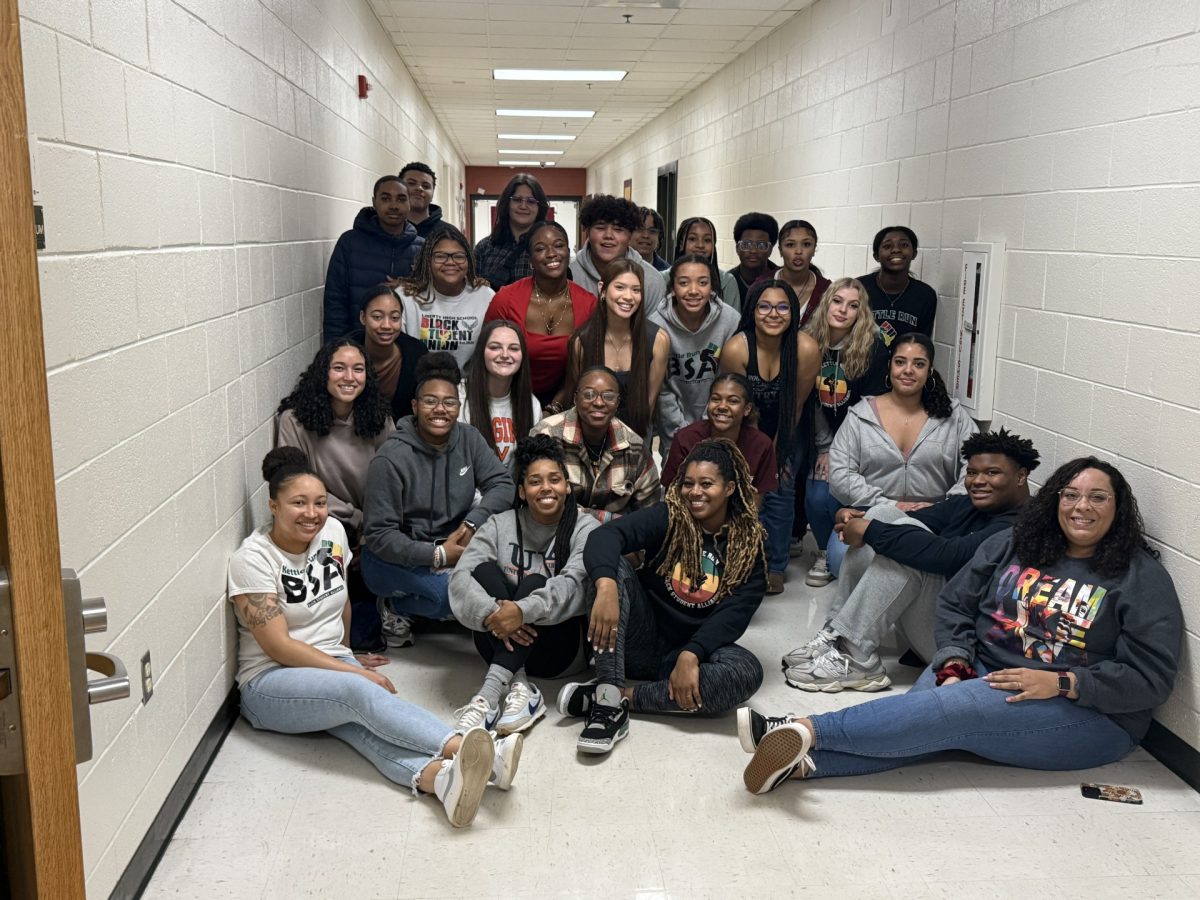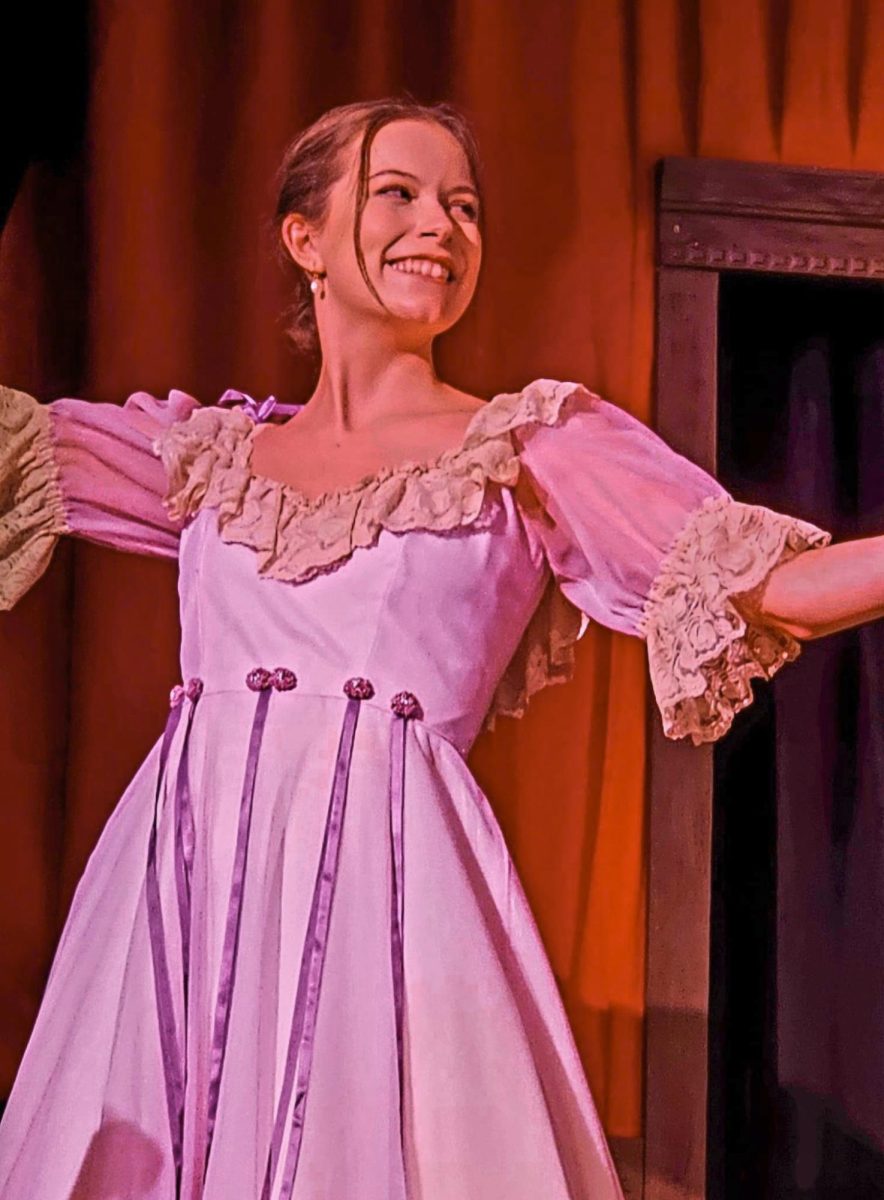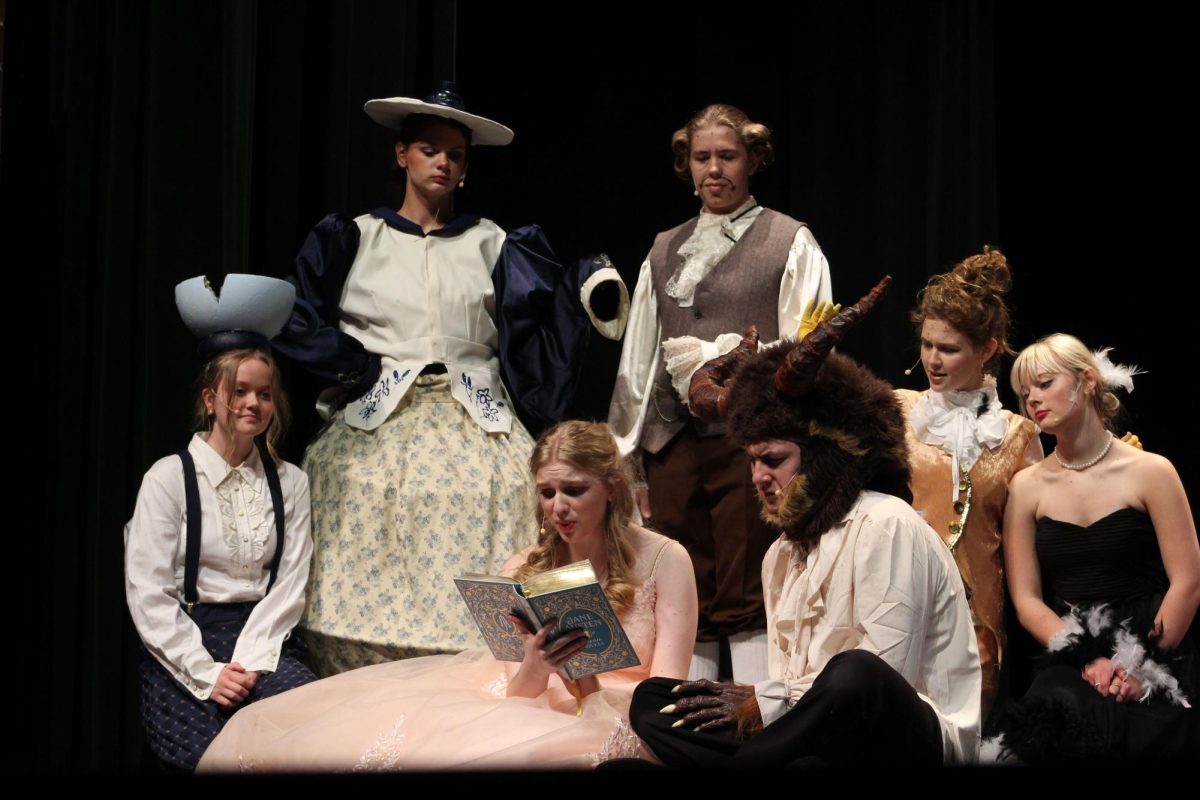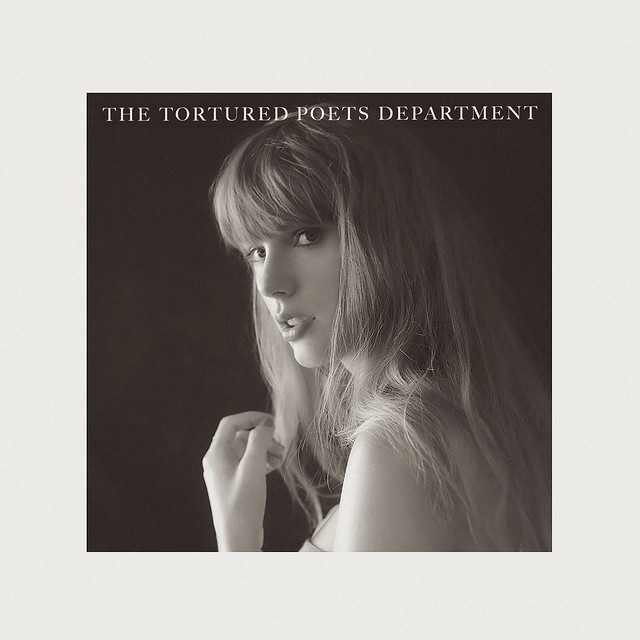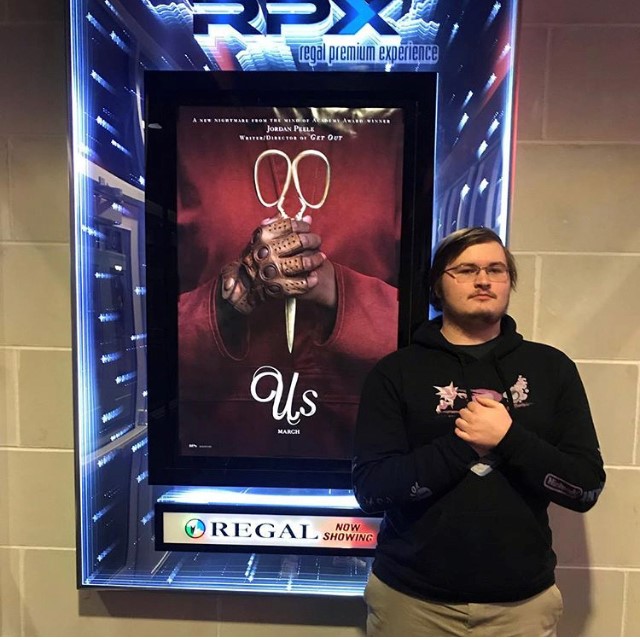“Us” Offers Both Style and Substance
New horror movie presents conventional horror with a twist
Posing in front of the movie poster, Senior Connor Roy prepares to see the new horror movie, Us.
May 6, 2019
After Key and Peele star Jordan Peele shook Hollywood with his politically charged horror-thriller Get Out, fans heavily anticipated the former comedian’s next foray into horror films.
After Us’s announcement, the film quickly gained traction on social media, with a cryptic trailer leaving Get Out fans with one major question: what’s Peele going to say with this film? Unlike Get Out, however, Us more closely follows the trends of conventional horror, and leaves its messages in the realm of metaphors and fan-made theories.
In Us, the mother of a middle-class family is haunted by the memory of seeing her doppleganger on Santa Cruz beach as a child. Years later, revisiting the beach with her husband and children, evil clones of the family, include her childhood clone attack the family with an intent to kill them and take their place in society.
The film comes out the gate strong, with a suspenseful and ominous opening that starts audiences off at the edge of their seats. As a director, it’s undeniable that Peele is working at his best; the slow, looming camerawork mixed with detailed and immersive sound design build a looming sense of terror throughout the entire opening.
After a short break for exposition, Peele continues the momentum gained by the opening with the first major horror sequence. The entire sequence was shot and directed excellently, with the aforementioned sound editing mixed with a phenomenal score, making it one of the tensest sequences I’ve seen in a film.
The horror is propelled even further by the excellent acting we see from the main cast. Lupita Nyong’o shows us the heart of her two characters, Adelaide and her evil counterpart Red, and Winston Duke provides a great comic relief, without sacrificing the tension and drama present in the film. Shahadi Wright Joseph and Evan Alex provide a convincing performance as the family’s two children, and are downright haunting as their counterparts.
As a more traditional horror movie, the themes of Us are relegated to metaphors and symbolism, which is where a point of contention arises in the film. After the first half of the film, Peele tries to deliver his message while wrapping up the plot. Seeing as the plot operates more on metaphors than logic, the overall story doesn’t line up logically at points; at times it seems to be a little too up-to-interpretation as it tries to create a balance between the literal and the metaphorical that may leave a bit to be desired on both ends.
There are multiple ways to interpret the allegory present in Us: either the family is fighting their evil subconscious, the parts of them that they repressed in order to live successful lives, or the uprising of the evil family represents a revolution of the lower class, as they’re reduced to monsters by their more successful counterparts. Either way, the film’s deeper political themes relate to class struggles in American society, as opposed to Get Out’s racially-driven allegories.
While its story writing sees some small struggles balancing literal and metaphorical, Us functions beautifully as both a horror film and a commentary on American society. The writing, acting, directing, and sound design all come together beautifully to create an experiencing that will haunt audiences long after they leave the theater.



